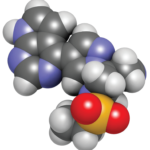ACR Convergence 2021—The recent Boxed Warning requirement applied to three Janus kinase (JAK) inhibitors, cautioning doctors and patients about several major risks in patients with rheumatoid arthritis, came only after rigorous data collection and careful consideration of the risks and the benefits, U.S. Food & Drug Administration (FDA) officials said in November at ACR Convergence 2021.
In a session updating the audience on a variety of areas overseen by the FDA, many attendee questions had to do with the decision earlier this year to issue a Boxed Warning for the whole class of JAK inhibitors approved for rheumatic conditions: tofacitinib, baricitinib and upadacitinib. The warning is related to major heart events, malignancy, blood clots and mortality. The data, the officials said, also warranted limiting the indications: These drugs must only be used for patients with an inadequate response or intolerance to one or more tumor necrosis factor (TNF) inhibitors.
The warnings, the most prominent issued by the FDA, came after a post-marketing research safety study on tofacitinib revealed safety concerns.1 Tofacitinib was found to bring a 33% higher risk of major adverse cardiovascular events and a 48% increased risk of malignancy (except for non-melanoma skin cancers) compared with TNF inhibitors, the research found.
A major question: What was the rationale for extending the warning to the other two drugs, too?
“Yes, they are all JAK inhibitors, but they are different JAKs, and really, is it fair to cover them all with a significant class-effect warning?” one attendee asked.

Dr. Rajpal
“Given the seriousness of these safety concerns,” said Anil Rajpal, MD, MPH, medical team leader in the rheumatology and transplant medicine division at the FDA, “and the cumulative knowledge about the dose- and exposure-dependent toxicities, we considered that these findings are relevant to baricitinib and upadacitinib—in other words, to be class effects for the products for the treatment of inflammatory conditions.”

Dr. Nikolov
Nikolay Nikolov, MD, director of the rheumatology and transplant medicine division at the FDA, said the rigorous nature of the data dictated the broader warning. “We certainly recognize the importance of tofacitinib and all the JAK inhibitors in the management of inflammatory conditions,” he said. “However, we also recognize that we now have the safety data, which are derived from a prospective, randomized controlled study that was specifically designed and conducted to compare the safety of tofacitinib to that of TNF inhibitors. And the data are compelling and robust to support the meaningful comparisons of adverse events of special interest.”



